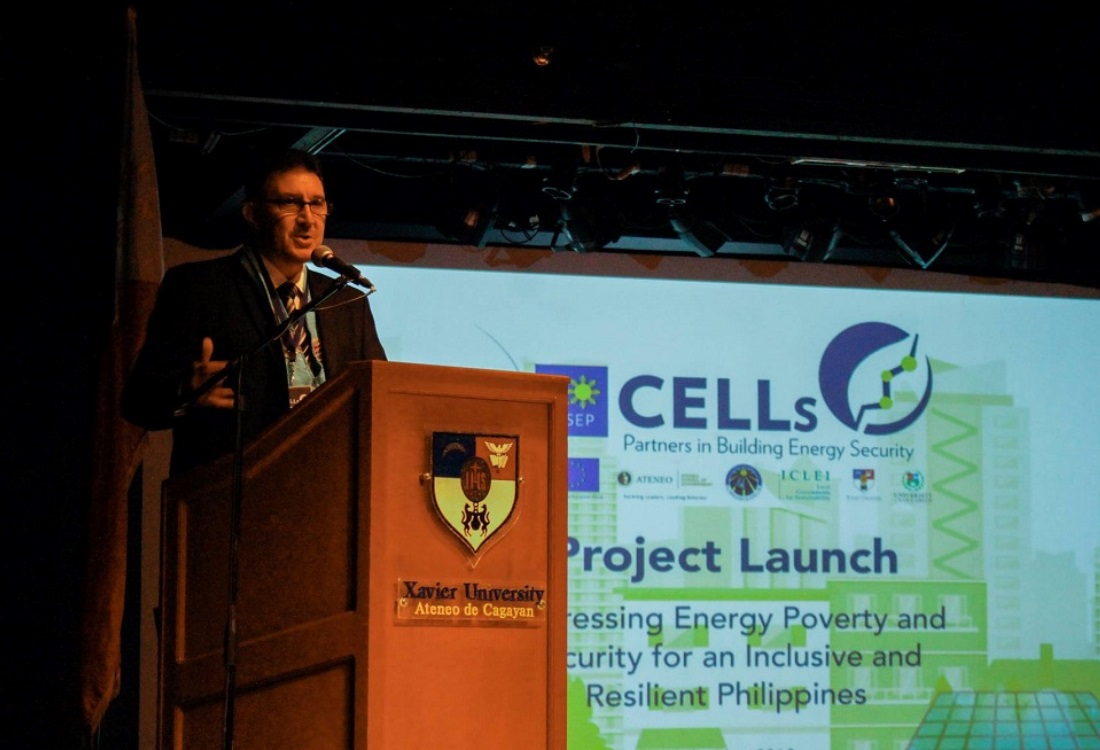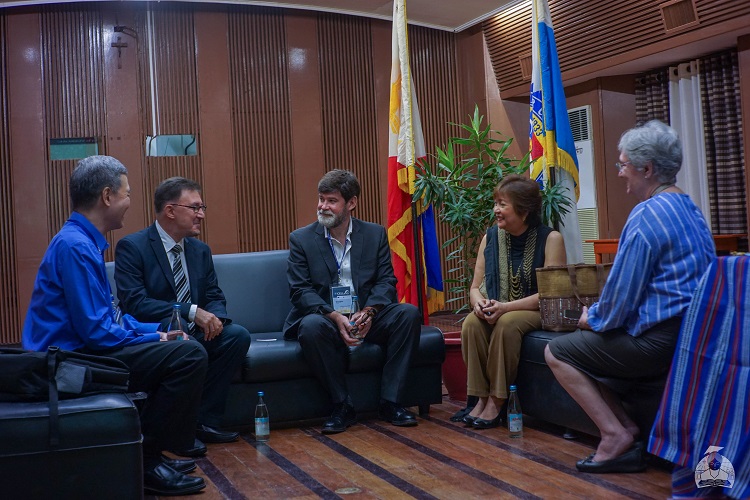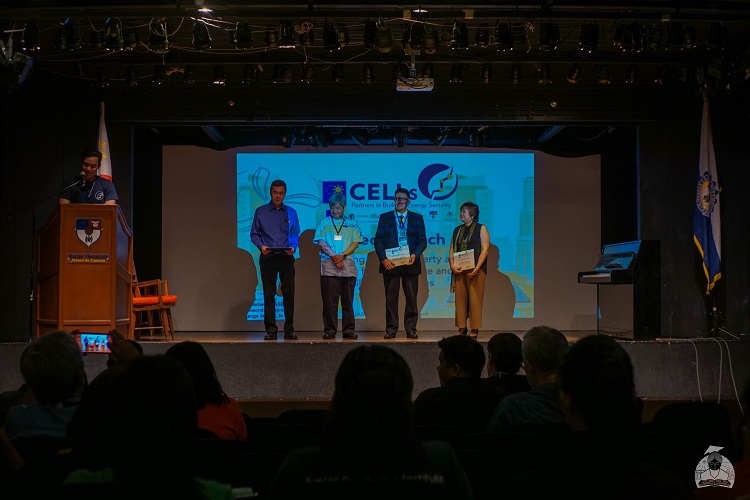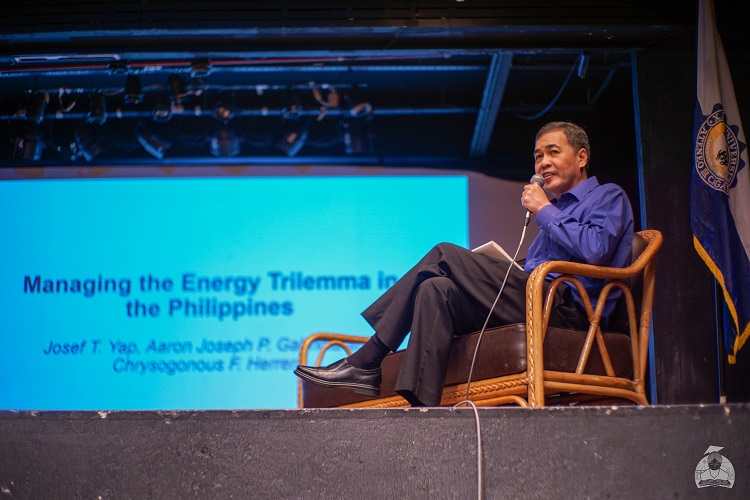
RENEWABLE ENERGY. Giovanni Seritella of the EU Delegation to the Philippines says that ASEP-CELLs is anchored on three pillars: knowledge management, capacity development, and advocacy. Photo courtesy of Mike Baños.
Xavier University - Ateneo de Cagayan partnered with local governments and universities to help implement the sustainable energy project of the European Union and the Department of Energy.
The EU-funded project, dubbed as "Access to Sustainable Energy in the Philippines – Clean Energy Living Laboratories (ASEP-CELLs)," was launched on October 28 at the XU Little Theater.

ASEP-CELLs will be implemented by the Ateneo School of Government, Xavier Ateneo, University of San Carlos, Manila Observatory, and ICLEI-SEAS. It aims to boost the country's energy capacity by tapping into renewable energy sources.
Through the project, the national government can meet its rural electrification targets by 2020 in accordance with the Philippine Development Plan.
During the project's launch, Giovanni Seritella of the EU Delegation to the Philippines said that ASEP-CELLs is anchored on three pillars: knowledge management to address needed policy reforms to push the renewable energy agenda; capacity development to support the knowledge and skills of those who champion these reforms; and advocacy to support the creation of the demand for renewable energy intervention in the country.

Xavier Ateneo president Fr Roberto C Yap SJ echoed the need for sustainable energy to mitigate the effects of climate change, saying: "There is an urgent need to develop policies so that, in the next few years, the emission of carbon dioxide and other highly polluting gases can be drastically reduced, for example, substituting for fossil fuels and developing sources of renewable energy."
Yap added that Xavier Ateneo is "very proud and happy" to participate in energy policy formulation through research, capacity building, and technical assistance.

"I hope we will be able to show good examples, even small examples that really renewable energy is possible and sustainable and really beneficial to communities, especially for poor communities in the peripheries," Yap said in his speech.∎